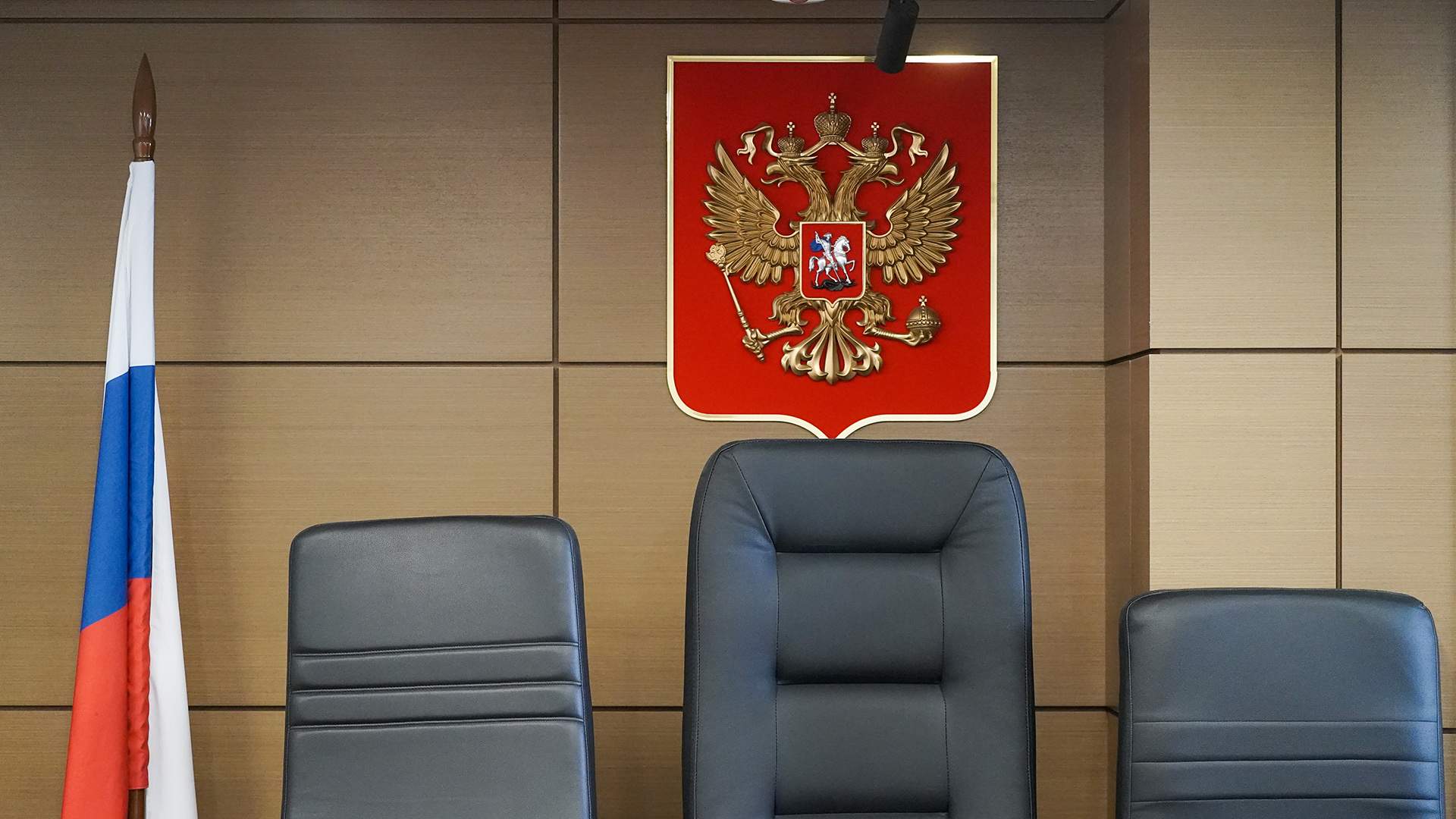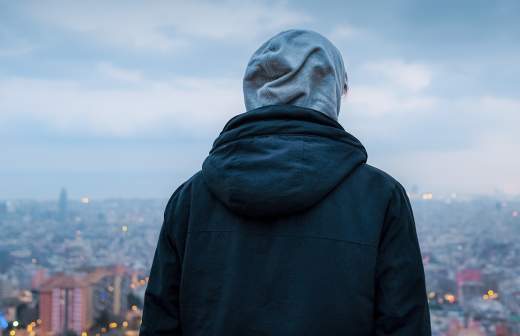And all is hard work: Hydra trafficker sentenced to life imprisonment

Stanislav Moiseev, a resident of Khimki near Moscow, created a drug trafficking network that had subdivisions in almost 60 Russian regions and Belarus, recruited new members in social networks and messengers, guided candidates through the "security service" of the OPS, and concluded employment agreements with an online store that implied bonuses for performance and fines for violation of labor discipline. "Izvestia" found out these and other exclusive details of the work of the criminal group, which traded drugs on the darknet portal Hydra ("Hydra"). On December 2, the court sentenced Moiseyev to life imprisonment. 15 of his co-conspirators received from eight to 23 years in prison.
How the drug cartel worked
December 2, Moscow Regional Court sentenced Khimki resident Stanislav Moiseyev to life imprisonment for creating a large drug trafficking network. Earlier, the jury convicted Moiseyev and 15 other members of the group.
Depending on their role and degree of participation in the commission of crimes, they were found guilty of organizing and participating in a criminal association, illegal production and sale of narcotic and psychotropic substances by an organized group on a large scale using the Internet.
According to the case file, the network created by Moiseev in 2015-2016 was one of the largest in Russia - with "branches" in almost 60 regions of the country. Among them were the Leningrad, Moscow, Astrakhan, Belgorod, Bryansk, Volgograd, Voronezh regions, Udmurtia, Tatarstan, Crimea, etc.
The cells of the network worked as separate structural units, each of which dealt with goods on a "turnkey" basis - from production and packing to transportation and distribution. Moiseyev's drug trafficking networks also operated in Belarus - in Minsk, Mogilev, Vitebsk and Brest.
The members of the OCU produced mephedrone, amphetamine, hashish and other types of illicit plant and synthetic drugs in specially equipped laboratories and sold them by contactless means through stash houses. One such laboratory operated in the Solnechnogorsk district of the Moscow region. During a search, operatives seized a whole arsenal of equipment: several vacuum pumps, glass flasks, electronic scales, a chemical refrigerator and reactor, a drill with a stirrer and other specific devices.
Drugs were sold through the shadow segment of the Internet, payment was accepted in bitcoins and for conspiracy purposes was conducted through several electronic wallets, so that law enforcement agencies could not trace where the money was withdrawn. At the same time, only the head of the criminal organization and the "curator" had access to the cryptocurrency wallets and accounts.
In addition to producing its own drugs, Moiseyev's cartel also sold "ready-made" batches that came from CIS countries, Europe and Africa.
Labor agreement
In the OPS constantly recruited new members, who were found in social networks and messengers, according to the materials of the Prosecutor's Office of the Moscow region (available from "Izvestiya").
Each new candidate was guided through the "security service" of the OPS and signed an agreement on employment in an online store. The agreement implied bonuses for output and penalties for violation of labor discipline. In addition, each new member of the OPS had to agree to the rules of behavior, security and conspiracy measures established in the OPS.
One of the conditions of employment was a savings bond into which all participants were required to contribute a percentage of their wages. The most successful employees were given an "authorization" procedure (a face-to-face offline meeting) and promoted to department heads.
The criminals' activities were well concealed, and they used the messengers Vipole and Telegram to communicate. Stanislav Moiseyev was the head of the criminal association and its subdivisions. For conspiracy purposes, he used the nicknames of some well-known criminal authorities, and also called himself God and Boss.
Over the years, Moiseyev changed shady Internet sites - after the liquidation of one he immediately moved to another and opened stores there. In doing so, he skillfully manipulated demand and tried to create an "illusion of choice" among consumers.
For this purpose, he created one main and two subsidiary online stores on the well-known Hydra site on the darknet, posing as independent sales outlets. Each of the stores had "operators" who served consumers through a specially encrypted mobile application.
Outwardly, this application looked like an ordinary calculator, but when a pin code was entered, it began to function for fixing the stash-basket - it transmitted to the buyer GPS-coordinates, photo illustrations and a description of the area, type and weight of the drug. It also transmitted this information to structural subdivisions.
The store owned land plots with houses in which laboratories were equipped, as well as expensive cars with special caches for transportation. And for the packing of "goods" attackers rented entire warehouses, told "Izvestia" prosecutor of the department of state prosecutors of the criminal and judicial department of the criminal and judicial department of the Prosecutor's Office of the Moscow region Tatyana Fadeeva. The average income from the three stores amounted to a total of about 40 million rubles per week.
The defendants even had their own "information-software department" (responsible for Internet security) and "financial-analytical department" (tracking and fixing profits, calculating salaries). OPS rules prohibited placing drugs in hiding places near government offices and in the entrances of residential buildings. Large shipments were left in garbage bags a few dozen kilometers from cities - in forests, fields, or abandoned buildings.
Special treatment
Moiseyev and his associates were detained in the fall of 2018, during searches, law enforcers seized almost one ton of drugs from them. The volume of the criminal case amounted to 400 volumes, the indictment on it was approved by the Prosecutor General's office.
During the debate of the parties, the prosecutor requested a life sentence for the key defendant. The court agreed with him.
Several "aquariums" were needed to house 16 defendants in Mosoblasts court. Some defendants hid their faces from the press under medical masks, while others openly smiled at their relatives present in the courtroom.
The convicts will serve their sentences in correctional colonies of special and strict regimes. The court also ordered Moiseyev to pay Br4 million, while his accomplices were sentenced to a combined fine of Br16 million. In addition, the court confiscated cars, land plots and real estate of the convicts to the state.
All the articles imputed to Moiseyev are not just grave, but especially grave, former investigator Alexei Bardakov told Izvestia. For a number of them, the Criminal Code provides for a maximum penalty of life imprisonment.
- The OPS is the most serious structure in the organized crime hierarchy after a group of persons by prior conspiracy and an organized group," the expert said. - A ton of drugs is a very large consignment, given that the especially large size starts on average above a kilogram, depending on the type of substance.
Crimes related to drug trafficking are among the most severe in terms of sanctions, confirmed Ilya Drozdov, a lawyer of the law firm Makeev and Partners. According to him, deployed drug laboratories are discovered in Russia every year, and large-scale drug shipments from abroad are stopped.

- However, law enforcement agencies are not always able to promptly find the leaders of criminal organizations; more often than not, they catch simple drug couriers and pawnbrokers," the lawyer said. - In this regard, the case of Moiseyev is remarkable.
According to court statistics, in 2021, more than 16 thousand people were convicted under Article 228.1 of the Criminal Code of the Russian Federation. people, in 2022 - more than 18 thousand, and in 2023 - more than 20 thousand. On the one hand, this indicates a growing problem of drug trafficking, on the other - more fruitful work of law enforcement agencies, summarized the expert.
Lawyers of the convicted refused to comment.
Переведено сервисом «Яндекс Переводчик»










